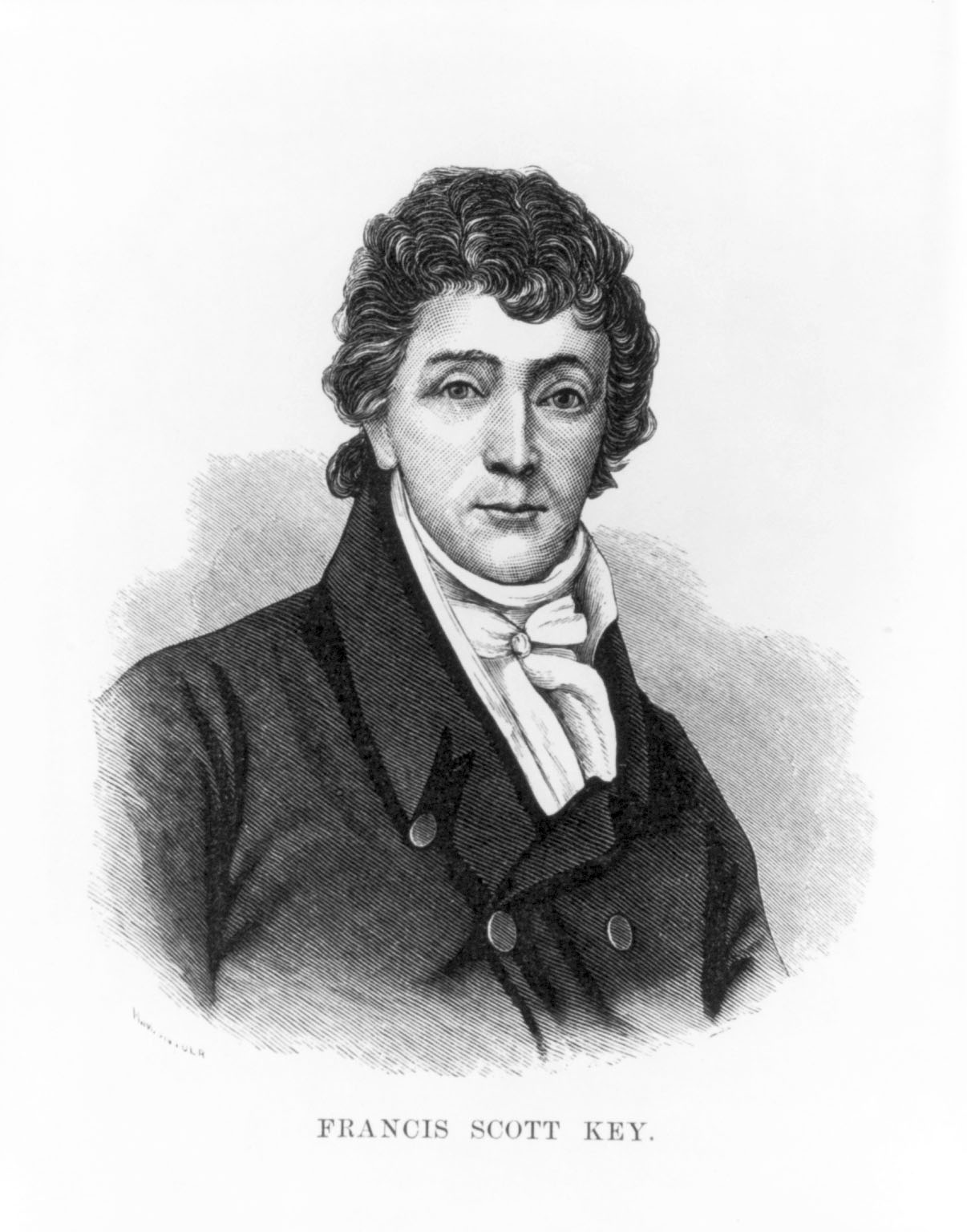Songs of artist: Francis Scott Key
Songs Chords Lyrics of artist: Francis Scott Key
Francis Scott Key
Francis Scott Key (August 1, 1779 – January 11, 1843) was an American lawyer, author, and amateur poet from Frederick, Maryland who is best known for writing a poem which later became the lyrics for the United States’ national anthem, "The Star-Spangled Banner". During the War of 1812, Key observed the British bombardment of Fort McHenry in Maryland in 1814. Key was inspired upon viewing the American flag still flying over the fort at dawn, and wrote the poem or lyric "Defence of Fort M’Henry", which was published within a week with the suggested tune the popular song "To Anacreon in Heaven." The song with Key’s lyrics became known as "The Star-Spangled Banner," and slowly gained in popularity as an unofficial anthem over the years, finally achieving official status more than a century later under President Herbert Hoover as the United States national anthem. Key was a lawyer in Maryland and Washington D.C. for four decades, and worked on important cases like the Burr conspiracy trial, and argued numerous times before the U.S. Supreme Court. Nominated for U.S. attorney for the District of Columbia by President Andrew Jackson, he served from 1833 to 1841. Key owned slaves from 1800, during which time abolitionists ridiculed his words, that America was more like the "Land of the Free and Home of the Oppressed". He freed his slaves in the 1830s, paying one ex-slave as his farm foreman. Key publicly criticized slavery and gave free legal representation to some slaves seeking freedom, but also represented owners of runaway slaves as well. Representing both slaves and slave owners is emblematic of his complex relationship with slavery. As District Attorney, Key suppressed abolitionists and did not support an immediate end to slavery. In a letter reprinted in the African Repository (April 1839) Key said in part (answering several related questions):
Fourth question — "Is it the general belief of humane and Christian colonizationists in the south, that slaves ought not to be emancipated, unless they are also sent out of the country? If this is their opinion, on what is it founded? Were they set free, would not their labor still be needed, and might it not be secured on terms more advantageous to both parties than under present arrangements?" It is, I believe, universally so thought by them. I never heard a contrary opinion, except that some conceived, some time ago, that a territory in our country, to the West, might be set apart for them. But few, comparatively, adopted this idea; and I never hear it advocated now. This opinion is founded on the conviction that their labor, however it might be needed, could not be secured but by a severer system of constraint than that of slavery — that they would constitute a distinct and inferior race of people which all experience proves to be the greatest evil that could afflict a community. I do not suppose, however, that they would object to their reception in the free states, if they chose to make preparations for their comfortable settlement among them.
Key was a leader of the American Colonization Society which sent freed slaves back to Africa.Key was a devout Episcopalian. He was also an author of poetry, and often wrote on religious themes. It has been speculated that the U.S. motto "In God We Trust" was adapted from a line in the fourth stanza of the "Star-Spangled Banner".

